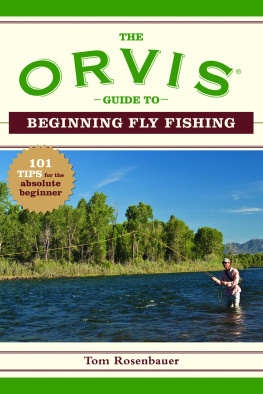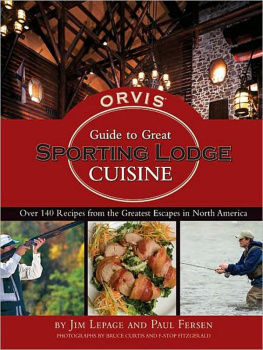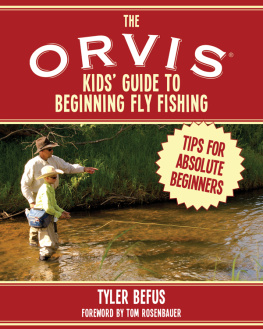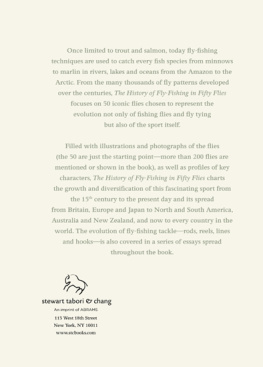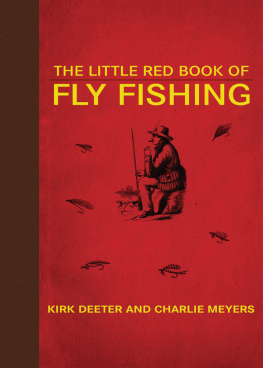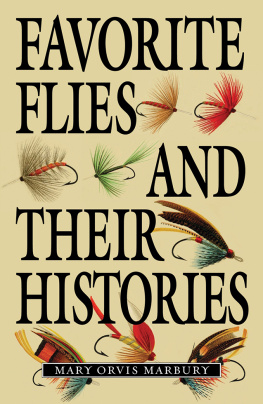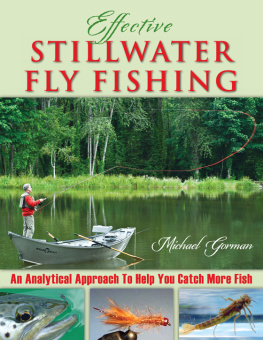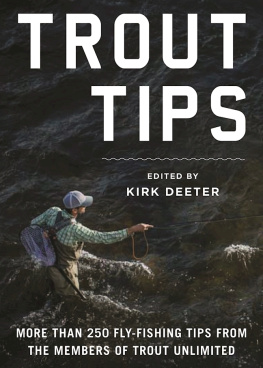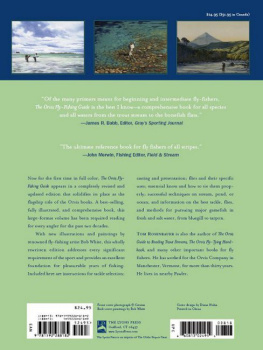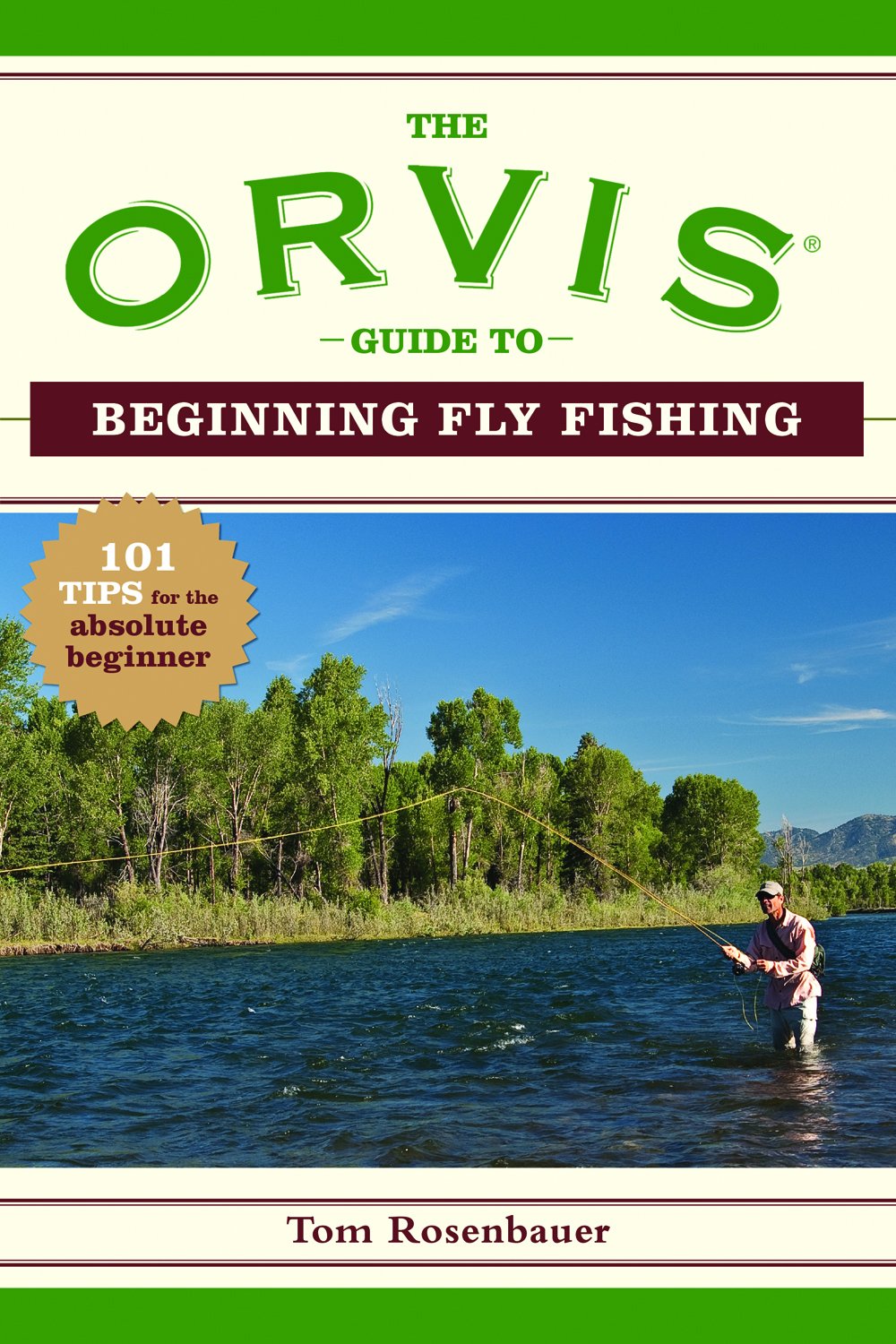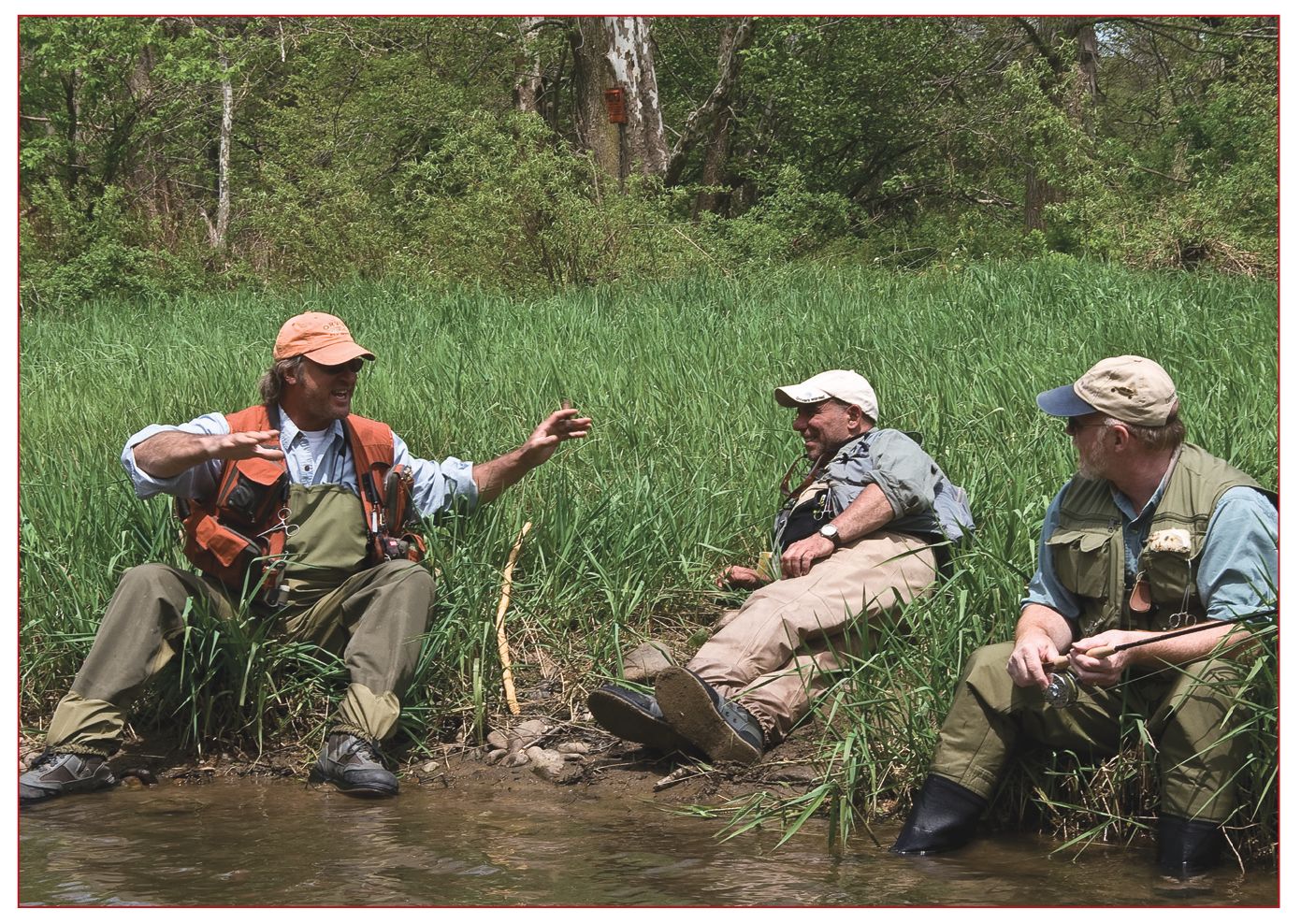How do you get started if you dont have a mentor?
IN THE FIRST PART OF THE TWENTIETH CENTURY, FLY-FISHING skills were passed from parents, patient relatives, or friends to novice fly fishers. A lucky find at a local library might turn up a ragged copy of Ray Bergmans Trout . But without the advantage of helpful videos, modern photographs, and clear illustrations, learning fly fishing without a mentor was an exercise in frustration. Today, you have rich sources of information, from hundreds of books and DVDs to free resources on the Internet. But when you need to ask, What went wrong with my cast? or How should I present that dry fly? these sources fall mute.
The best place to begin is at a fishing school. The emphasis in schools and clinics is on fly casting, which is the most difficult aspect of fly fishing to master, and whether you learn to cast from a school or on your own, make sure youre comfortable with the basics of casting before you go fishing. Most schools are run by people with proven skills at teaching fly fishing and youll benefit from their experience at identifying quick ways to improve your fly casting. You can choose from independent schools, classes run by tackle companies, or free clinics held by local fly shops. But not everyone has the time or the inclination to learn in a classroom setting. To some they are a painful reminder of high-school algebra. Others are too anxious to get right on the water and enjoy the calming sunshine of a June morning in the middle of a river.
The next best option is a reliable and understanding fishing guide. Some guides are comfortable with novices and others have neither the temperament nor the patience to spend the day removing a clients flies from streamside brush. If you want to learn on a guide trip, explain to the guide that you are a rank beginnerdo not overestimate your skills, as a guide can see through your deception after a few castsand that you are interested as much in learning technique as you are in catching fish. If the guide seems reluctant on an initial phone call, make a polite exit and try a different guide. And pick your location carefully. Saltwater fishing for bonefish or tarpon, fishing for trout on rivers that are termed technical, or steelhead fishing in the middle of winter are not places to learn. Fishing for trout in stocked or wilderness waters where the fish strike eagerly, chasing small striped bass or redfish in saltwater estuaries, or fishing for bass and panfish in lakes are experiences that will teach you important skills and still allow an expectation of a fish on the end of your line.
You may not want to pay for a guide or a fishing school because of economics or principle. Finding a mentor is difficult but not impossible these days. First, in any social situation, try to identify yourself as a beginning fly fisher. Its amazing how many fishing buddies have come together this way, and the bonding that can happen when two fly fishers realize a common passion in an otherwise boring or uncomfortable event is almost instantaneous.
Join a local Trout Unlimited, Coastal Conservation Association, or Federation of Fly Fishers chapter. These organizations often have a circle of members who take great pleasure in introducing new people to fly fishing, and if you show interest in volunteering for local stream improvement or cleanup projects youll get acquainted quicker than you would by sitting in the back corner at monthly meetings.
Along the banks of a river, you can sometimes find friendly anglers willing to answer your questions, no matter how basic.
The most unreliable but sometimes the most satisfying way to learn more about fly fishing is by finding an impromptu mentor on the banks of a trout stream or on a lonely beach at dawn. But you have to be careful about whom you ask for advice.Avoid groups of three or four people fishing close togetherthey are probably fishing pals taking a trip together and you may feel like the new kid in school trying to sit down at the lunch table with the football team. I would also avoid the lone angler with a tense, crouched posture staring intently at the water. This guy has just traveled for hours to do battle with a trout and does not want to be distracted with small talk.
Look for the lone angler standing on the bank with relaxed posture who seems to be in no hurry to get into the water. Hes already been on the river for a week, or is retired and fishes there every day, and may be very generous with advice and helpful hints. Approach him slowly and away from the water so you dont spook any fish that may be close to the bank, offer a pleasant greeting, and read his tone of voice and body language. If he offers some advice, listen, and once he starts fishing, ask if you can watch what he does. Just stay on the bank and dont wade into his pool, as there is nothing that betrays your lack of knowledge more than crowding a fellow fly fisher.
The best way to practice your casting
THERE IS NO FLY-FISHING CIRCUMSTANCE WHERE CASTING poorly will offer an advantage. I recently hosted a week-long bonefishing trip to the Bahamas where one angler went fishless until the very last day. Despite being a good sport about it, I could sense his frustration welling up and I knew he was not having a good time. Although the weather was cooperative and not windy, he was still not able to place a fly with any accuracy because he had not taken the time to practice his casting before the trip. On his last morning on the islands, I woke him up at dawn and made him practice, without the distraction of feeding fish or the pressure of a guide watching over his shoulder, on the lawn in front of his hotel room. After an hour of practice he was placing his fly wherever he wanted at forty feet. That day he caught and released three bonefish, and when I caught up with him at the dock after fishing I was worried his smile would pop his jaw out of its socket.
You must feel comfortable with that fly rod in your hand before you spend time, money, and emotional capital on a fishing trip. And there is no substitute for practice. Find a place where you have fifty feet behind and in front of you, with perhaps twenty feet of clearance on each side. This can be your lawn, a park, a rooftop, parking lot, alley, or a deserted gym. Water is essential for practicing casts like the roll cast or spey cast, but for the overhead cast, which youll use 90 percent of the time, dry-land casting is fine.Try to practice when no one is around so you wont be distracted and wont have to answer platitudes about how many youve caught.
You can practice casting wherever you have enough room. No water required.
Use the same line youll be fishing with. Most of the time this will be a floating line, but if you plan to use a sinking line, practice with one because youll need to adjust your timing for the denser character of the line. Never cast without a leader. Fly lines are designed to be cast with a leader on the end, which slows the casting loop at the end and offers air resistance that adds the finishing touch to your cast. Finally, tie to the end a piece of brightly colored yarn that mimics the size and air resistance of the flies youll be using. If you have old flies, cut the point off one and use that instead. Place an object thirty or forty feet away. Now work on your accuracy. The ability to hit a six-inch target at forty feet about 20 percent of the time means youre ready to go fishing, as long as the other 80 percent of your casts are not far off.

